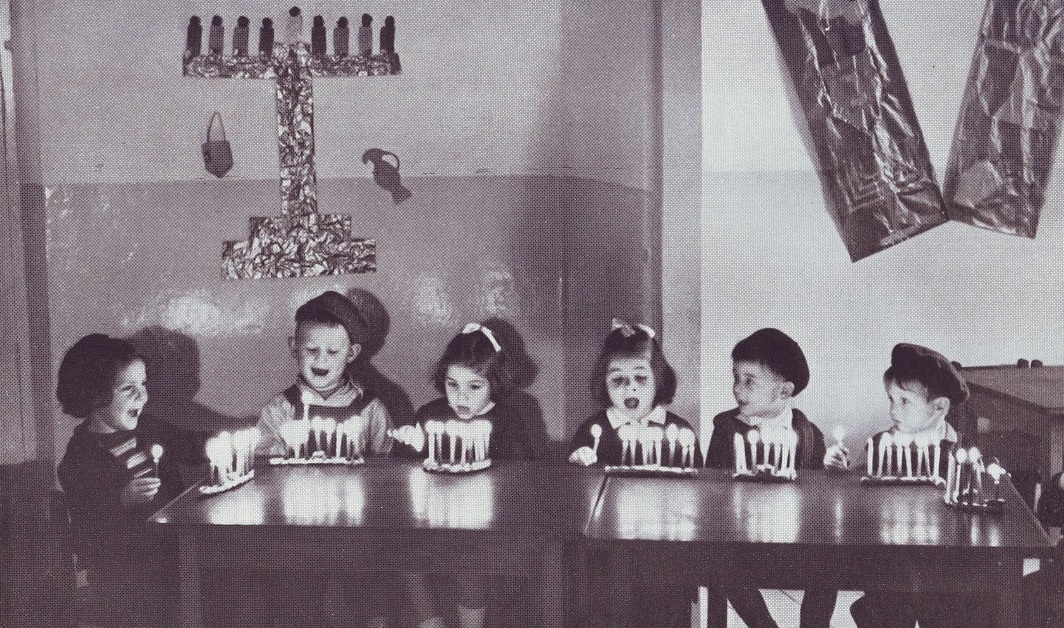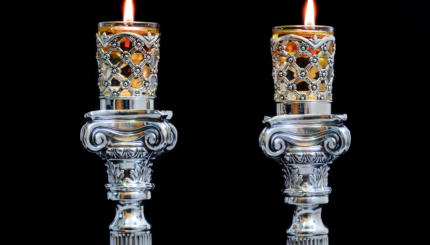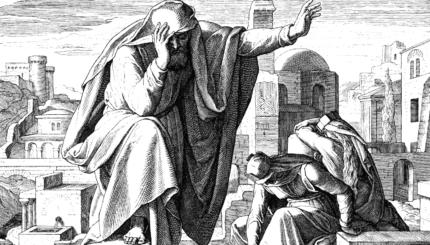The Rabbinic tradition was hostile to the Maccabees; and modern Zionism, identifying with the Maccabees, was often hostile to the Rabbis. Thus Hanukkah has been a kind of battlefield between “the Rabbi” and “the Maccabee” as models of Jewish life. Is there any way to integrate these conflicting orientations to Hanukkah?
From the standpoint of the Rabbi, Hanukkah celebrated God’s saving Spirit: “not by might and not by power…” To the Rabbi, this spiritual enlightenment required a kind of inwardness and contemplation that was contradictory to insurgent politics.
From the standpoint of the Maccabee, Hanukkah celebrated human courage and doggedness, the human ability to make history bend and change: The need to organize, to act, to fight, to build might and use power, seemed in the aspect of the Maccabee to contradict study, prayer, and contemplation.
Can a new generation of Jews help to resolve this contradiction? If our forebears repressed and ignored the sense of Hanukkah as a festival of the darkened moon and darkened sun, what could we contribute by opening up to that aspect of the festival? What could we add by seeing Hanukkah as part of the nature cycles of the year and month?

Help us keep Jewish knowledge accessible to millions of people around the world.
Your donation to My Jewish Learning fuels endless journeys of Jewish discovery. With your help, My Jewish Learning can continue to provide nonstop opportunities for learning, connection and growth.
Seen this way, Hanukkah is the moment when light is born from darkness, hope from despair. Both the Maccabeean and Rabbinic models fall into place. The Maccabean revolt came at the darkest moment of Jewish history–when not only was a foreign king imposing idolatry, but large members of Jews were choosing to obey.
The miracle at the Temple came at a moment of spiritual darkness–when even military victory had proven useless because the Temple could not be rededicated in the absence of the sacred oil. At the moment of utter darkness in Modin, Mattathias struck the spark of rebellion–and fanned it into flame. At the moment of utter darkness at the Temple when it would have been rational to wait for more oil to be pressed and consecrated, the Jews ignored all reasonable reasons, and lit the little oil they had.
The real conflict is not between the Rabbi and the Maccabee, between spiritual and political, but between apathy and hope, between a blind surrendering to darkness and an acting to light up new pathways. Sometimes the arena will be in outward action, sometimes in inward meditation. But always the question is whether to recognize the darkness–and transcend it.
The necessity of recognizing the moment of darkness is what we learn from seeing Hanukkah in its context of the sun and moon. There is no use pretending that the sun is always bright; there is no use pretending that the moon is always full. It is only by recognizing the season of darkness that we know it is time to light the candles, to sow a seed of light that can sprout and spring forth later in the year.
Seen this way, Hanukkah can become a time for accepting both the Maccabee and the Rabbi within us, seeing them as different expressions of the need to experience despair and turn toward hope. Seen this way, Hanukkah can become a resource to help us experience our moments of darkness whenever they occur throughout the year–and strike new sparks.
Reprinted with permission from Seasons of Our Joy (Beacon Press).
Explore Hanukkah’s history, global traditions, food and more with My Jewish Learning’s “All About Hanukkah” email series. Sign up to take a journey through Hanukkah and go deeper into the Festival of Lights.
Hanukkah
Pronounced: KHAH-nuh-kah, also ha-new-KAH, an eight-day festival commemorating the Maccabees’ victory over the Greeks and subsequent rededication of the temple. Falls in the Hebrew month of Kislev, which usually corresponds with December.

Help us keep Jewish knowledge accessible to millions of people around the world.
Your donation to My Jewish Learning fuels endless journeys of Jewish discovery. With your help, My Jewish Learning can continue to provide nonstop opportunities for learning, connection and growth.



